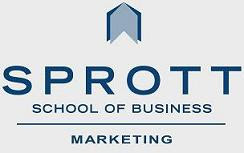Viral movie marketing kicked off in earnest with the remarkable success of The Blair Witch Project in 1999, but after the 2006 flop of Snakes on a Plane, some were left wondering whether the trend had run its course. Hardly. Feature films depend on 'buzz', making Internet-based viral campaigns a great fit...at least, for young, web-savvy audiences. Oh yeah, and the movie can't be crap either.
Previous Movies that Used Viral Marketing

3 comments:
When it comes down to viral marketing, I believe that some very funny commercials make great use of this concept as well.
For example, in The Netherlands, there is a company called "Centraal Beheer Achmea" (insurance), with their very famous slogan "even Apeldoorn bellen" which means, quickly call Apeldoorn (a Dutch city in which the company is located). Now, their commercials are always so funny, that whenever they have a new commercial, you will hear people talking "did you see the new 'even Apeldoorn bellen' commercial?".
I think this is a great concept however it does not always work out. A couple of years ago, this company faced the problem that everyone knew their commercials but no one knew which company actually put them on the air.
Fortunately for them, they solved this problem by having the company name mentioned more often during the actual commercial.
If you want to check out some of these nice dutch commercials, go here (don't worry, you do not need to understand Dutch to get the commercial):
http://www.youtube.com/watch?v=uvoEJI8HDYE
or
http://www.youtube.com/watch?v=OWyA8ijd6ek
And referring to some of my comments in class, here is "my" Duracell bunny ;)!
http://www.youtube.com/watch?v=VMVjyfT1srA
See you all in class!
One thing I've always found fascinating as a potential study in viral marketing is the "Paul Is Dead" fiasco from the 1960's.
http://en.wikipedia.org/wiki/Paul_is_dead
"Some have claimed that the hoax was perpetrated by The Beatles themselves, either as a joke or to stimulate record sales, since the initial call placed to Russ Gibb coincided with the release of Abbey Road. This was denied numerous times by all four band members."
From some additional research, I discovered that it wasn't until 1996 that the term "viral marketing" was actually coined.
My questions is, have there been any notable academic studies examining the history of Viral Marketing and its actual impact on sales?
I'm guessing you have already done the obvious, and visited the Wikipedia entry (http://en.wikipedia.org/wiki/Viral_marketing) but for those who haven't, there is plenty of good information there on the history of what is now commonly called viral -- or, more gently, word-of-mouth marketing.
Another site to check out is the Word of Mouth Marketing Association http://www.womma.org/, which among other things seeks to bring more credibility and legitimacy to a method of marketing that some still view as unreliable and occasionally unethical.
As for the impact of viral marketing on sales, the anecdotal evidence that it works is pretty convincing -- just check out any successful campaign, where sales were nil beforehand and soared afterwards. More interesting, perhaps, is what makes some viral campaigns succeed and others fail. Google Scholar is a good place to start when seeking answers to that question.
Post a Comment